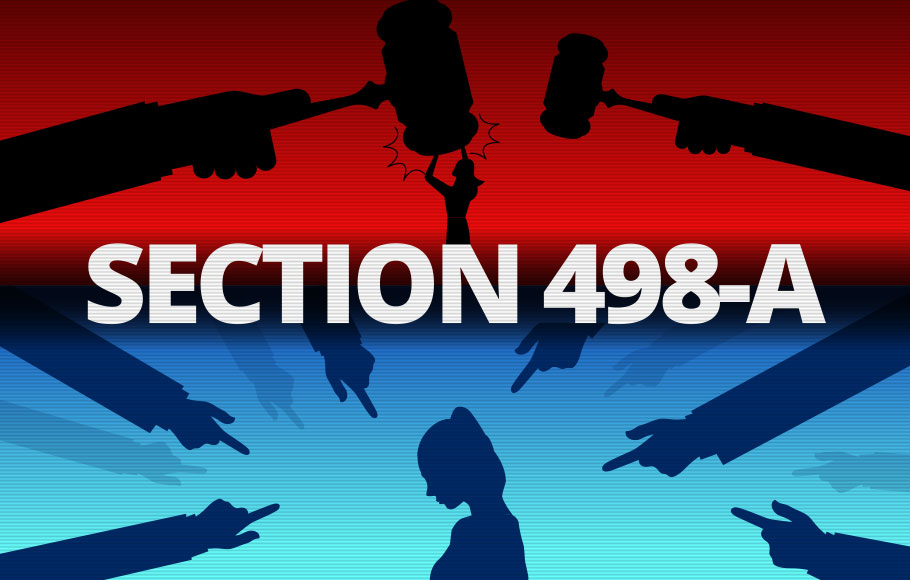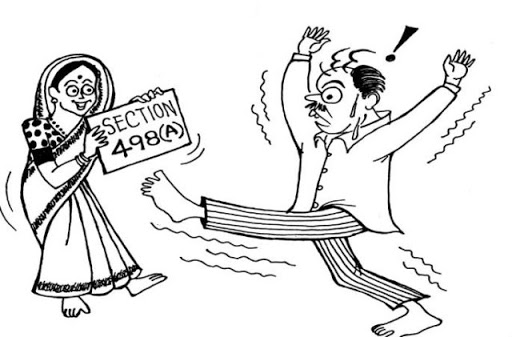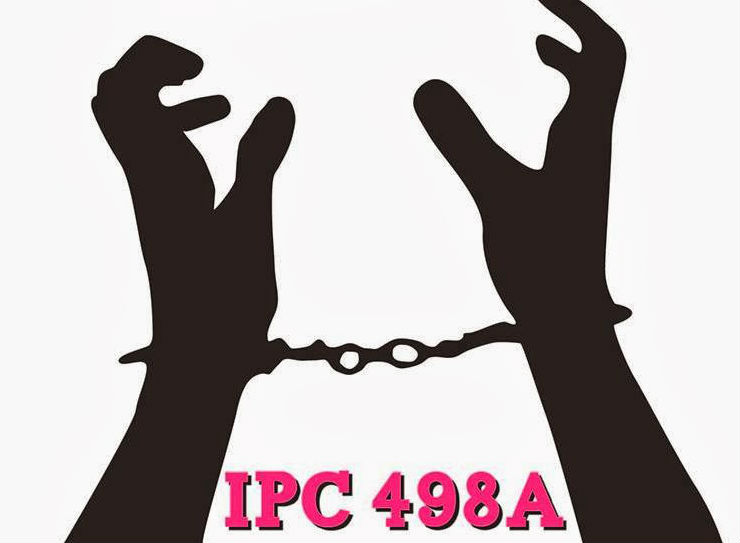Section 498A in the Indian Penal Code (IPC) is a non-bailable offence that protects married women from abuse by their husbands or their spouse’s family members. The law states that cruelty towards a married woman is a crime, and the individuals or the family members are subjected to a minimum of three years of imprisonment along with a fine. Cruelty here states to –
- An action that is likely to drive women to commit suicide,
- Action that causes grave mental or physical injury to a woman,
- Harassment with a view to coercing women or any of their relatives to meet any unlawful demands of property.
According to a report by Business Standard on Indian Women facing domestic violence, around 29.3% of married Indian women between the ages of 18 and 49 have suffered physical or domestic violence in 2019-2022, and around 3.1% of pregnant women aged 18 to 49 have suffered physical violence during their pregnancy.
Introduced in 1983 as an amendment to IPC to address the growing cases and concerns of domestic violence, section 498A in the Indian Penal Code allows all Indian wives who are suffering from mental or physical abuse to file a case on their husband, his parents, sisters, brothers, uncles, aunt, cousins, and other relatives.
Are you also suffering from domestic abuse or domestic violence? Or, is any of your known going through these undesired situations in their married life? If yes, this blog will assist you with all the details regarding section 498A in the IPC. Scroll down to the section in this blog below to know more!
What are the Essential Sections for 498A?
For section 498A to be applied, certain prerequisites, as explained below, need to be met.
- Who It Protects: This law is for married women. It stops husbands or male relatives from mistreating or hurting their wives or female family members. The idea is to keep women safe from any trouble within their marriage.
- What counts as cruelty: If a woman goes through any bad treatment or asks for money or gifts (dowry) from her husband or his family, it’s considered cruelty under this law.
- Who Could Cause the Trouble: The cruelty or harassment could come from the husband or his family, or sometimes from both. This law knows that problems can come from different people in the family.
This law is meant to help women who face problems in their marriages. It’s important to know it’s for real problems and not to make up stories. If someone faces such issues, it’s a good idea to gather proof and talk to legal experts who can help understand how to use Section 498A to get help.
Nature of Offence Under Section 498A
- Cognizable: Crimes under Section 498A are considered cognisable, which means the police have the authority to arrest without a warrant. Law enforcement must report and investigate any crime under this section based on legal definitions.
- Non-bailable: When a complaint is filed under Section 498A, the magistrate can deny bail and send the accused to court or police custody without requiring a bail hearing.
- Non-compoundable: Cases filed under Section 498A are non-compoundable, meaning the petitioner cannot withdraw or settle the case outside of court. However, there are exceptions, such as in the Indian state of Andhra Pradesh, where recent changes have made it possible to settle 498A charges outside of court.
Cruelty – As Defined Under Section 498A
Cruelty, as defined under Section 498A, covers intentional or reckless actions causing pain or suffering to another person or animal. In the context of the law, cruelty includes punishing, torturing, victimising, or engaging in inhumane behaviour towards individuals. It’s a broad term encompassing actions that purposely cause harm or neglect to prevent harm to others, including various concepts.
Under Section 498A, the following actions constitute cruelty or harassment towards women:
- Provoking a woman intentionally to the extent that she considers or commits suicide.
- Engaging in intentional actions that could seriously harm a woman, leading to possible charges.
- Any intentional act that risks a woman’s physical or mental health or her life.
- Harassing a woman to force her or her family to meet an illegal demand for property or valuable security.
- Subjecting a woman to abusive behaviour in cases where she can’t provide the dowry.
Harassment and cruelty, in everyday language, involve causing someone continual mental suffering through persistent and hostile interference or threats. Violating Section 498A occurs when a wife or her family faces persistent harassment intending to force them to give up property or essential security. Using force or threats to control someone’s actions is termed “coercion.”
Bail Under Section 498A
Bail under Section 498A can help those who have been arrested but have not yet been proven guilty to get out of jail until their trial. If the punishment for an offence is up to three years or a fine, it’s usually considered bailable. This means the accused person can ask for bail, which is like a guarantee they’ll show up for their court case.
For the offence under Section 498A of the Indian Penal Code, which deals with cruelty against women in marriage and is a severe offence, bail can be granted. However, only the Magistrate can grant bail once the police have registered a complaint known as a “First Information Report” (FIR) filed by the person who made the complaint.
It’s important to know that Section 498A is severe and doesn’t allow compromise between the parties involved. So, if someone accused under this section wants to get bail, they must go through legal procedures and consult a Legal Expert.
Frequently Asked Questions
Q. 1 Is Section 498A subject to the presumption of innocence?
Ans: The accused are presumed innocent until proven guilty; however, the presumption doesn’t apply directly to the accused under Section 498A.
Q. 2 Is it possible to be arrested under Section 498A of IPC without prior police notice?
Ans: Yes, arrests are possible, but after the Arnesh Kumar judgment, police need credible information or a reasonable complaint before making an arrest.
Q. 3 Is there a difference between Section 498A and dowry harassment?
Ans: Section 498A doesn’t mention “dowry,” focusing on cruelty against married women; the Dowry Prohibition Act addresses dowry directly.
Q. 4 What are the grounds for filing a complaint under Section 498A?
Ans: Section 498A addresses various forms of cruelty against women, including physical, mental, or emotional abuse, dowry demands, harassment, economic abuse, and sexual abuse within marriage.
Q. 5 What is the procedure for filing a complaint under Section 498A?
Ans: The process involves initiating a First Information Report (FIR) at a police station, which should detail the alleged cruelty with specific information like date, time, place, and witnesses. Subsequently, the police conduct an investigation and file a charge sheet if enough evidence is found. The case proceeds to trial, where the court examines the evidence and delivers a judgment.
Q. 6 What are the rights of the accused under Section 498A?
Ans: Accused individuals have the right to be informed of the charges, legal representation throughout the legal process, the right to apply for bail (unless there’s a risk of absconding or evidence tampering), a fair trial, including presenting a defence and cross-examining witnesses, and the right to remain silent.
Q. 7 What are the consequences of filing a false complaint under Section 498A?
Ans: Filing a false complaint under Section 498A can result in imprisonment for up to three years, imposition of fines, compensation to the accused for damages caused by the false complaint, and damage to the complainant’s reputation.
Q. 8 What are the statistics on Section 498A cases in India?
Ans: As per 2021 data, there were 76,211 cases filed under Section 498A in India, with a conviction rate of approximately 63.6%.
Q. 9 What are the arguments for and against Section 498A?
Ans: Proponents argue that Section 498A safeguards women from domestic violence, acts as a deterrent, and empowers victims. Opponents raise concerns about misuse, high acquittal rates, potential misuse of bail provisions, and its adverse impact on accused individuals and families.
Q. 10 What are the recent judgments related to Section 498A?
Ans: Notable recent judgments include Rajesh Sharma v. State of U.P. (2018), Kahkashan Kausar v. State of Bihar (2020), and State of Kerala v. Reji Thomas (2022). These judgments addressed various aspects of evidence and specificity in 498A cases.
Q. 11 What are the resources available for victims of domestic violence in India?
Ans: Support resources include the National Commission for Women (NCW), State Commissions for Women, One Stop Crisis Centers (OSCCs), and numerous Non-Governmental Organizations (NGOs) offering counselling, legal aid, and shelter.
Q. 12 What are the differences between Section 498A and other provisions related to domestic violence?
Ans: Section 498A deals explicitly with cruelty by husbands or relatives, while other laws, such as Section 323 IPC for physical assault, Section 494 IPC for adultery, and the Protection of Women from Domestic Violence Act, 2005, offer varied civil and criminal remedies in cases of domestic violence.



